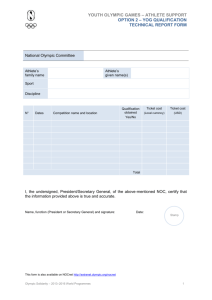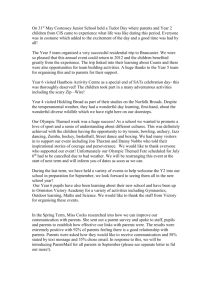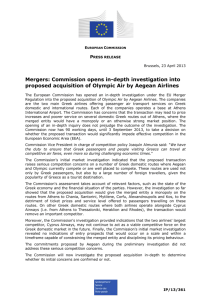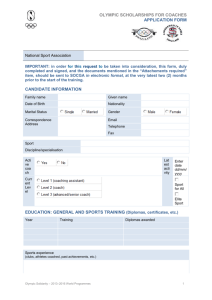DOC - Europa
advertisement
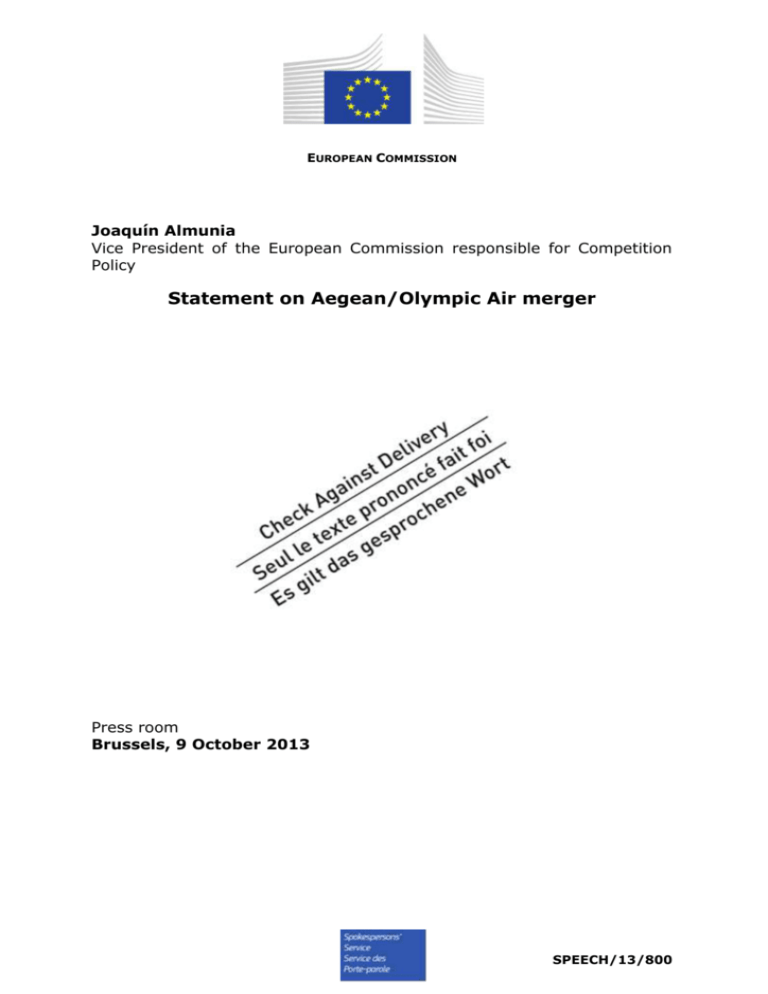
EUROPEAN COMMISSION Joaquín Almunia Vice President of the European Commission responsible for Competition Policy Statement on Aegean/Olympic Air merger Press room Brussels, 9 October 2013 SPEECH/13/800 Today, I have proposed the Commission to approve the acquisition of Olympic Air by Aegean Airlines. Let me explain to you how and why we reached this conclusion. Aegean notified this proposed acquisition earlier this year. This was the second time we had to look at its attempt to acquire Olympic Air. A previous attempt was made in 20102011. At the time, the Commission had no choice but to prohibit the merger in light of the very negative effects on competition it would have provoked. So what has changed since then? As always, when we receive a new notification, we have to carry out a new investigation and look at the situation as it is under the present circumstances. The picture today is quite different from what it was two or three years ago. At the time of the first notification, Olympic was much bigger: it was operating 32 planes, including 15 jets. Today it just operates 14 turboprop aircraft and is in the process of giving back its last remaining jet. It has become a much smaller, regional carrier. In the new investigation, we have found that the air transport services provided by the two companies overlap on 3 routes during the whole year (Athens-Mytilene, AthensChania and Athens-Santorini) and 2 more routes during the Summer (Athens-Kos and Athens-Corfu). 950 000 passengers travelled on these routes in 2012. By contrast, in 2011 we found that their activities overlapped on 9 routes accounting for 4 million passengers per annum. Despite this significant differences, we investigated in-depth the impact on competition of the merger on the 5 remaining routes. We initially expressed our concerns and opened an in-depth investigation (what we call “phase II investigation). The detailed investigation revealed that, in contrast to its situation 2 years ago, Olympic today is simply not able to continue operating outside of Aegean. Had Olympic been able to continue operations outside the Aegean group, the decision would have been a prohibition. But now, because of both the on-going economic crisis in Greece and Olympic's very difficult financial situation, Olympic would be forced to leave the market soon, with or without merger. If it were not acquired by Aegean, Olympic would simply shut down. This means that on the 5 problematic routes, Aegean would remain in any event the only player. This is in part, as I mentioned, due to the economic situation in Greece. The Greek crisis has seen a drop of 26% in demand for domestic air passenger transport from Athens: from 6.1 million passengers in 2009 to 4.5 million passengers in 2012. This decline has continued during the first half of 2013. Moreover, Olympic has never been profitable since its privatisation in 2009 and ever since, it has received considerable financial support from its sole shareholder, Marfin. A thorough analysis of Olympic's business prospects has confirmed it's extremely unlikely that the company will become profitable in the foreseeable future, under any business plan. Therefore, I reached the conclusion that because of both the on-going economic crisis in Greece and Olympic's very difficult financial situation, Olympic would be forced to leave the market soon, with or without merger. Finally our market investigation has also shown that there is no other credible purchaser interested in acquiring Olympic. There has also been no expression of any credible interest in the acquisition of Olympic's very few assets. This extends to the brand, which is owned by the Greek state. 2 So there is no doubt that the "failing firm defence" scenario can apply and should apply to this case. I am of course fully aware that the market situation on the 5 routes we have looked at is not favourable to the almost one million passengers who use them each year and, in any possible scenario, would only face one single carrier. But the merger itself is not the cause of this situation. We all know that Greece is going through exceptional circumstances. What I'm asking the Greek competition authority and my own services is to monitor very carefully any possible abuse of the dominant position that Aegean, for sure, will have on these 5 routes. We have investigated this case very thoroughly. It was not obvious that an acquisition that received a negative decision almost three years ago could today be cleared on the basis of a new notification. But the reasons I just explained to you are powerful enough to explain why we took this decision. 3
